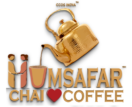In the world of beverages, few have captured the imagination quite like bubble tea and traditional tea. While both offer unique flavors and experiences, they stand on opposite ends of the spectrum in terms of preparation, ingredients, and cultural significance. In this blog, we’ll explore the distinctions between bubble tea and traditional tea, examining what sets them apart and why each holds a special place in the hearts of tea enthusiasts worldwide.
Understanding Bubble Tea:
Aspect | Bubble Tea | Traditional Tea |
Ingredients | Tea base, milk, sweetener, tapioca pearls | Tea leaves, water |
Flavors and Varieties | Wide range of flavors and toppings | Varieties based on tea type and region |
Preparation Time | Quick and convenient | More time-consuming and ceremonial |
Cultural Significance | Modern, playful | Traditional, ceremonial |
Health Considerations | Higher in calories and sugar | Lower in calories, potential health benefits |
Bubble Tea vs. Traditional Tea: A Summary Comparison
Bubble tea, also known as boba tea or pearl milk tea, originated in Taiwan in the 1980s and has since gained global popularity for its unique combination of flavors and textures. At its core, bubble tea typically consists of a base tea (such as black, green, or oolong tea), milk (or a non-dairy alternative), sweetener (usually simple syrup or flavored syrup), and tapioca pearls, which lend the beverage its distinctive chewy texture.
The Bubble Tea Experience:
What sets bubble tea apart from traditional tea is its playful and customizable nature. In addition to the traditional milk tea base, bubble tea comes in a variety of flavors and combinations, ranging from fruity blends to creamy indulgences. Toppings like fruit jellies, pudding, and popping boba further enhance the sensory experience, allowing for endless experimentation and personalization.
The Role of Tapioca Pearls:
Central to the bubble tea experience are the iconic tapioca pearls, or boba, which are made from the starch of the cassava root. These chewy, marble-sized balls are cooked until tender and then soaked in a sweet syrup to infuse them with flavor. When added to the tea, tapioca pearls provide a satisfying texture contrast to the smoothness of the drink, creating a delightful sensation with every sip.
Traditional Tea: A Timeless Tradition:
In contrast to the whimsical and modern appeal of bubble tea, traditional tea holds a revered place in cultures around the world, with a history dating back thousands of years. Whether it’s Chinese green tea, Japanese matcha, or English breakfast tea, traditional teas are steeped in ritual and ceremony, embodying centuries of tradition and craftsmanship.
The Art of Tea Preparation
Unlike the quick and convenient preparation of bubble tea, traditional tea ceremonies often involve meticulous attention to detail and a deep appreciation for the process. From the selection of tea leaves to the temperature of the water and the timing of the steep, every element plays a crucial role in bringing out the nuanced flavors and aromas of the tea.
Health Considerations
When comparing bubble tea and traditional tea from a health perspective, there are some notable differences to consider. While traditional tea is prized for its antioxidant properties and potential health benefits, such as improved heart health and reduced risk of chronic diseases, bubble tea tends to be higher in calories and sugar due to the added milk and sweeteners.
Conclusion
In the debate between bubble tea and traditional tea, both beverages offer distinct experiences and appeal to different preferences and occasions. While bubble tea delights with its playful flavors, chewy tapioca pearls, and customizable options, traditional tea embodies centuries of tradition, craftsmanship, and cultural significance. Whether you’re craving a whimsical indulgence or seeking solace in a timeless ritual, both bubble tea and traditional tea have something unique to offer, making them beloved staples in the world of beverages. So whether you’re sipping on a refreshing cup of bubble tea or partaking in a traditional tea ceremony, take a moment to savor the flavors and appreciate the rich tapestry of tea culture that spans the globe.
humsafar chai franchise
Start Your Own Franchise Now
and Our Recent Testimonials Shows That Franchise Holder Gets ROI Within 6 Months
